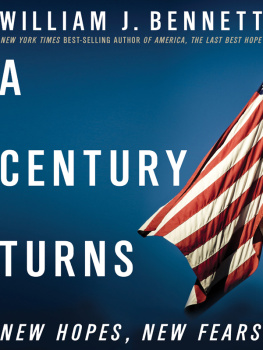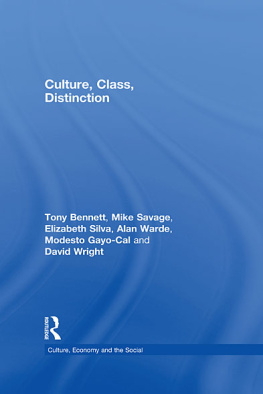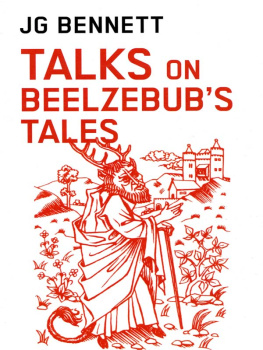Assembling Culture
If the social does not exist as a special domain but, in Bruno Latours words, as a peculiar movement of re-association and reassembling, what implications does this have for how the cultural might best be conceived? What new ways of thinking the relations between culture, the economy and the social might be developed by pursuing such lines of inquiry? And what are the implications for the relations between culture and politics? Contributors draw on a range of theoretical perspectives, including those associated with Deleuze and Guattari, Foucault, Law and Haraway, in order to focus on the roles of different forms of expertise and knowledge in producing cultural assemblages. What expertise is necessary to produce indigenous citizens? How does craniometry assemble the head? What kinds of knowledge were required to create markets for life insurance? These and other questions are pursued in this collection through a challenging array of papers concerned with cultural assemblages as diverse as brands and populations, bottled water and mobile television.
This book was published as a special issue of Journal of Cultural Economy.
Tony Bennett, Research Professor in Social and Cultural Theory, Centre for Cultural Research, University of Western Sydney
Chris Healy, Associate Professor in Cultural Studies, The University of Melbourne.
Assembling Culture
Edited by
Tony Bennett and Chris Healy
First published 2011
by Routledge
2 Park Square, Milton Park, Abingdon, Oxon, OX14 4RN
Simultaneously published in the USA and Canada
by Routledge
711 Third Avenue, New York, NY 10017
Routledge is an imprint of the Taylor & Francis Group, an informa business
2011 Taylor & Francis
This book is a reproduction of Journal of Cultural Economy 2.1-2. The Publisher requests to those authors who may be citing this book to state, also, the bibliographical details of the special issue on which the book was based.
All rights reserved. No part of this book may be reprinted or reproduced or utilised in any form or by any electronic, mechanical, or other means, now known or hereafter invented, including photocopying and recording, or in any information storage or retrieval system, without permission in writing from the publishers.
British Library Cataloguing in Publication Data
A catalogue record for this book is available from the British Library
ISBN13: 978-0-415-61443-6
Disclaimer
The publisher would like to make readers aware that the chapters in this book are referred to as articles as they had been in the special issue. The publisher accepts responsibility for any inconsistencies that may have arisen in the course of preparing this volume for print.
Contents
Tony Bennett and Chris Healy |
Evelyn Ruppert |
Tim Rowse |
Liz Mcfall |
Celia Lury |
Kay Anderson and Colin Perrin |
Tony Bennett |
Sharon Macdonald |
Helen Rees Leahy |
Gerard Goggin |
Helen Verran |
Gay Hawkins |
Andrew Pickering |
It is now clear that the three main organising concepts of the social and cultural sciences culture, economy, and the social are each undergoing a process of significant reinterpretation just as our understanding of the relations between them is changing equally rapidly. The Journal of Cultural Economy will serve as a major international vehicle for the intellectual clarification and empirical exploration of these developments. Its mission is to promote work that examines the varied and changing ways in which social, cultural, technical, and economic networks and practices interact with one another in complex ways whose analysis requires the abandonment of attempts to differentiate these as belonging to ontologically separate realms.
These orientations are evident in a wide range of work being undertaken in the social sciences and humanities at the present moment. It manifests itself, for instance, in the contemporary contributions of actor-network-theory and science studies to debates about the performativity of economic and social relations. It is evident in social anthropology and material culture studies, where there are parallel discussions about the distributive nature of economic and social agency and the ways in which this includes artefacts as well as persons. In cultural studies, a range of perspectives has been deployed to explore the making up of social and organizational identities and subjectivities, and this has been complemented by approaches to the governance of economic and social life stimulated by Foucaults work on governmentality. In sociology, a renewed focus on the relations between the social and the material has been animated by extensive interest in the work of Pierre Bourdieu; and a new orientation towards empirical studies of economic practices and cultures of production, and the spatial aspects of social organisation, has been inspired by the work of Gilles Deleuze.
All of these approaches to cultural economy are more or less united in their antithetical attitude towards those more general or epochal accounts which claim we are entering an era in which the boundaries between something called culture on the one hand and something called the economy or society on the other have been dissolved the economy of signs and space, the network society, the knowledge society and so on. There has, however, been a relative shortage of debate across and between them, so that collective and cumulative assessments of their relative theoretical and methodological strengths and weaknesses are rare. The Journal of Cultural Economy seeks to remedy this deficiency by providing the premiere forum for debating cultural economy in all its various manifestations.
Tony Bennett and Chris Healy
In taking issue with what he takes to be the defining assumption of sociology that is, the existence of the social as a specific domain or reality, distinguished from the economy and politics, for example, by laws and properties that are immanent to it Bruno Latour proposes instead that the social should be defined only as a very peculiar movement of re-association and reassembling (Latour 2005, p. 7). The task of social analysis, on this interpretation, becomes that of tracing the associations the varied actor networks through which particular kinds of social relations come to be assembled and made durable. Its concern, in tracing such processes of assembly, disassembly and reassembly, is with the complex distribution of agency between people, objects, technologies, texts where an actor is viewed not as the source of an action but the moving target of a vast array of entities swarming toward it (p. 46). The resulting, so to speak, shuffle of agency is one in which the forms of agency performed by an actor change not incessantly, and not necessarily radically in accordance with the overall configuration of the assemblages within which it is brought together, provisionally, and rarely exclusively, with other actors. And it is from this shifting shuffle of agency that particular kinds of power are made up, power understood as the final result of a process and not a reservoir, a stock, or a capital (p. 64). In contrast to more conventional sociological conceptions of power as rooted in an underlying structure that can account for its genesis and function, Latour sees power as a force that can only be analysed by following the processes through which it is made up and, equally important, through which it is performed and exercised.










